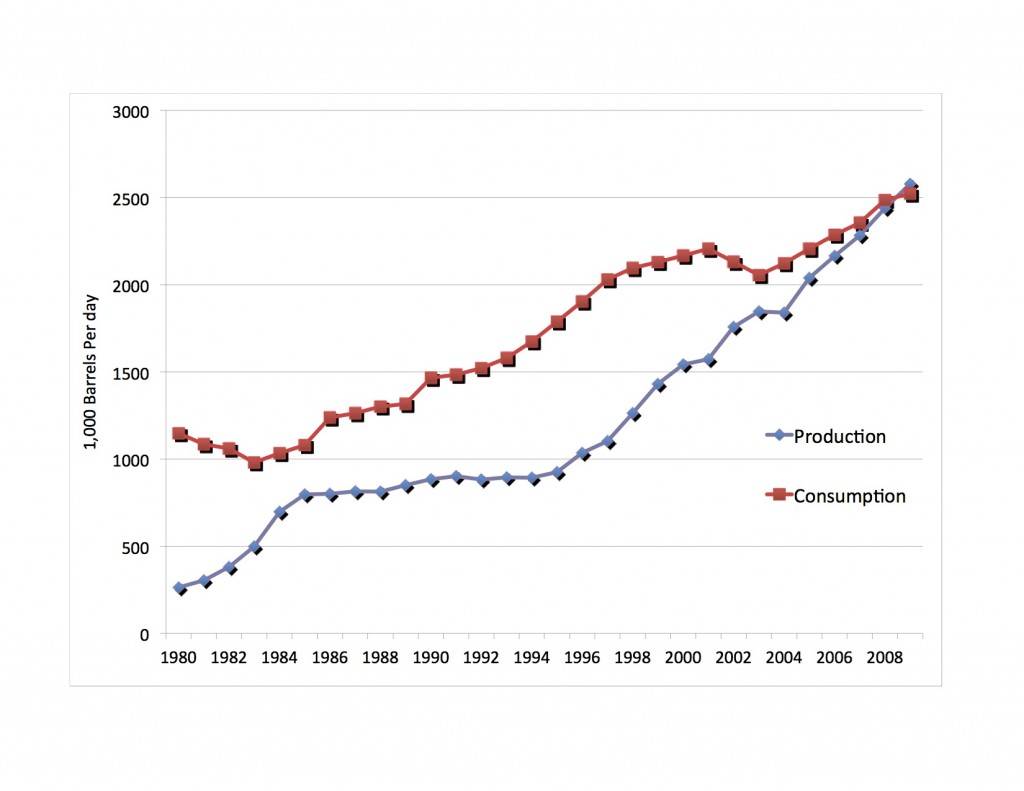The Honorable Barack Obama
President
The White House
Washington, DC 20500Dear Mr. President:
I am writing today to urge your Administration to take overdue but necessary action to confront soaring gasoline prices. In the last three years, gas prices have doubled, draining the disposable income of millions of hardworking Americans. In 2011, the typical U.S. household already spent $4,155 on gasoline, almost 10 percent of their income. Yet some analysts now predict prices may rise this year to more than $5.00 per gallon.
In a speech this Thursday, you stated that “there are no quick fixes to this problem. You know we can’t just drill our way to lower gas prices.” While we should explore a variety of energy resources—most especially those which do not put taxpayer dollars at risk—I respectfully disagree that we cannot utilize our remarkably vast untapped energy reserves to provide Americans with much-needed relief. I reject the defeatist view that says the nation that won two world wars, pioneered space travel, and overcame the Soviet Empire is now helpless in the face of high prices at the pump. We are not at the mercy of dictators, cartels, and events beyond our control.
Simply by removing the bureaucratic barriers imposed by your own administration we can begin to make progress. But we can go much further than that. Powerful action to harness America’s untapped oil and gas resources would place downward pressure on prices and speculation in the short-run and, by surging global supply, would serve to keep prices low in the future. Crucially, it would also provide millions of Americans with good-paying private-sector jobs; produce substantial royalties for local, state, and federal governments; reduce our enormous trade imbalance; and put an end to our huge wealth transfer from America to competitors oversees.
I therefore recommend the following proposals for immediate implementation:
1. Restore the bipartisan 2010–2015 offshore lease plan to ensure that the 31 lease sales called for in that plan are completed expeditiously. Your Administration only directed one lease sale in 2011 and has announced just one lease sale for 2012, far short of the number of sales that would have occurred over this period under the original 2010–2015 plan that your Administration discarded.
2. Take all necessary steps to accelerate the leasing and permitting process for domestic shale oil production. The United States has recoverable shale oil reserves estimated at 800 billion to 1.2 trillion barrels, meaning our nation has potentially three to four times more recoverable oil than any other country in the world except Canada.
3. Maximize energy production from federal lands. As I and 21 other Senators noted in a January 25, 2012 letter to you, actual oil production on federal lands is now just 714 million barrels per year, a 16 percent decline from what was projected just five years ago. This decline must be reversed.
4. End the de facto moratorium on permitting for offshore oil and gas production.
5. Direct the EPA, the Department of Energy, and other federal agencies to grant all necessary waivers and approvals to oil and gas refineries to facilitate maximum production at minimum cost. Refinery expenses comprise 11 percent of the price for gasoline that Americans pay at the pump, but your Administration has imposed numerous regulations that have driven refining costs up, not down.
6. Abandon your proposal to increase taxes and fees levied on U.S. energy production by more than $40 billion. These additional costs would be passed along to consumers, taking money out of their pockets and discouraging needed domestic production.
7. Approve the Keystone XL pipeline and grant necessary waivers, licenses, and permits, where possible, to ensure expedited completion of this important North American energy project. The pipeline would carry 700,000 barrels a day to U.S. refineries, which is nearly half what the U.S. currently imports from the entire Middle East.
America has the potential to fundamentally shift the balance of power in global energy production—to produce more energy, more efficiently and more cheaply, than your Administration has recognized. Such bold steps will broadcast an unmistakable signal to the world that not only places downward pressure on prices in the near-term but helps deliver a future of abundant, affordable energy. Moreover, unlike costly short-term stimulus, achieving energy independence would provide long-term relief to both struggling families and our indebted treasury.
I look forward to working with you on this important matter.
Very truly yours,
Jeff Sessions
U.S. Senator
Hmm….

